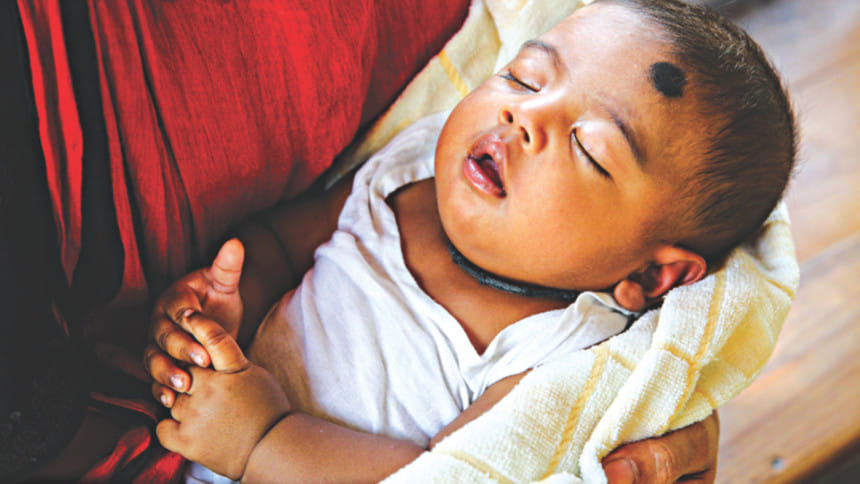MDGs: Bangladesh is a role model now

Out of the 8 UN Millennium Development Goals (MDGs) that were set, Bangladesh is well on its way to becoming a role model of success at achieving these goals. Maternal and child mortality rates have decreased drastically and work is still being done to provide free education for all. With consistent dedication and support from national and international developing partners, the country sees a brighter future for its people.
Bangladesh has received support from international and national partners in its long battles to attain the MDG goals. Amongst other development partners, The United Nations Population Fund (UNFPA) has been supporting the Ministry of Health and Family Welfare in various ways to increase the capacity of the health officials.
A total of 500 midwives will graduate from a UNFPA supported programme and will provide a whole continuum of care such as adolescent health care, family planning, antenatal care, safe delivery and early detection of complications which can prevent fistula as well as ensure the lives of mothers and babies.
UNFPA supported all rehabilitation centres in the country where survivors of fistula are provided with skill training to aid their rehabilitation and integration back into their own communities.
UNFPA's main concerns are child marriage, gender based violence and sexual reproductive health and rights amongst others. They have made great leaps and contributed to the overall decrease in maternal mortality and child mortality rates.
UNFPA's concern regarding fistula has prompted the organisation to extend all possible help to the government in addressing this most debilitating ailment.
Obstetric fistula is a childbirth injury that is usually caused by prolonged, obstructed labour, without timely medical intervention. Due to the lack of education and inability to access proper health care facilities these young girls live with this condition for years untreated, ashamed, and humiliated and in worse cases shunned by their own families; victims end up being divorced, socially shunned and unable to work for their own livelihood. These women not only face further poverty but the additional psychological distress of losing a child.
Recently The Daily Star and UNFPA jointly organised a district level roundtable titled Maternal Health Matters: Midwifery led Maternal Health Care and Ending Obstetric Fistula at Sylhet. The recommendations provided by the participants are as follow:
* Skilled and trained birth attendants can ensure safe motherhood through screening of complicated and high risk cases, delivery and postnatal care.
* Different stakeholders like the media, public representatives, MPs and religious leaders need to inform the community regarding safe maternal health and emergency obstetric services.
* More female doctors are needed to work in the rural and peripheral areas.
* Institutional delivery can minimise the chance of complications and infections. UNFPA and the media need to organise appropriate social awareness campaign in this regard.
* The corruption of disbursing illegal birth certificates must be stopped if the government wants to achieve no child marriage within 2041.
* People need to work together as a single force and concentrate efforts on improving maternal, neonatal and child mortality in both the urban and rural areas.

 For all latest news, follow The Daily Star's Google News channel.
For all latest news, follow The Daily Star's Google News channel. 



Comments